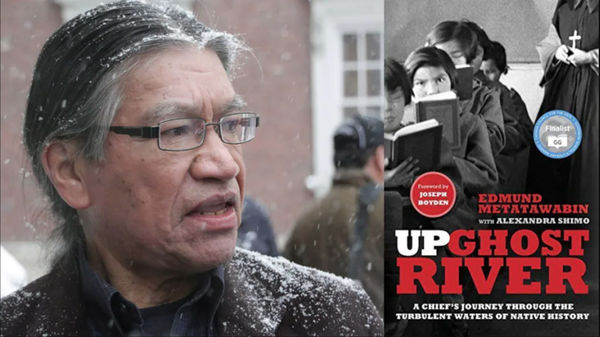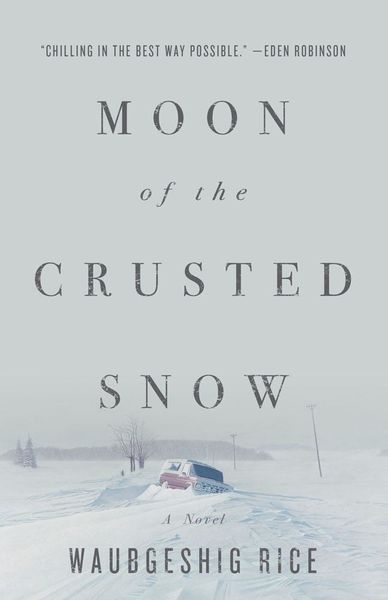Necessary Residential School Reading
By Waubgeshig Rice
As more and more mass graves at former residential school sites are brought to light, many Canadians are finally realizing the extent of genocide in this country, while many Indigenous people are reliving the traumas of the realities they have long known. The tally of dead Indigenous children at these horrible institutions will only climb in the months ahead, and now it’s up to Canadians to reconcile the truth of their country with the illusion of kindness and benevolence they’ve long been fed.
Much of these facts have already been highlighted by the Truth and Reconciliation Commission in its final report, released in 2015. And people in communities have been echoing these truths for as long as Canada has been ravaging Indigenous culture and lands, which began even before its official inception of this country. To supplement this important historical perspective, there are some essential books in the canon of Indigenous literature that reveal these harsh experiences, their impact on families and communities, and the efforts to heal in spite of ongoing brutality.
Shortly after the revelation of 215 bodies of children in the ground at the former Kamloops Indian Residential School site, prolific Cree author David Robertson created a comprehensive list on Twitter of books that explore residential schools. “Stories have played, & will continue to play, a role in educating Canadians, young & old, about the terrible legacy of Residential Schools,” Robertson wrote. “There's no excuse not to know the history or its impact.”
I wholeheartedly agree with my friend, and I thank him for assembling such an exhaustive list of profound stories. I have read many of them and would strongly recommend everyone take a look at the titles. Now, I’d like to take the opportunity to highlight a handful of them that have stayed with me over the years.
Indian School Days by Basil Johnston
This was the first book I read about residential schools. Although none of my close family members were forced to attend these institutions, a few in my extended family circle were taken, and I was very familiar with the abuses that proliferated there. When I read it as a teen, Indian School Days was a kind and careful closer look at this horrific system and its impact on children. As is common in most of his writing, Johnston employs flashes of humour to expose harsh truths. His insights are powerful, and his perspective is essentially historic.
They Called Me Number One by Bev Sellars
A more recent memoir published in 2013, Sellars intimately and painfully details the impact of the St. Joseph's Mission Residential School in British Columbia on her and her family. They Called Me Number One is a heartfelt examination of intergenerational trauma as a result of being stolen and abused by the residential school system, and the lifetime of recovery that follows. Sellars’ candid reflections poignantly reveal her own triumphant path to healing.
Your CanLit News
Subscribe to Open Book’s newsletter to get local book events, literary content, writing tips, and more in your inbox
Up Ghost River by Edmund Metatawabin
Like the rest of the books in Robertson’s list, Up Ghost River is an essential read for all Canadians. Metatawabin attended perhaps the most notorious residential school in the land: St. Anne’s in northern Ontario. He frankly lays out the atrocious abuses he and other children survived there, and how that trauma derailed the rest of his life. Again, it’s the journey to healing in his narrative that provides insights into what it takes to witness and overcome tragedies unjustly inflicted upon children.
Calling Down the Sky by Rosanna Deerchild
Through heartfelt poetry, Deerchild explores the revelations of growing up as an intergenerational survivor of residential school. Calling Down the Sky is a powerful collection that recounts Deerchild’s relationship with her mother, a survivor who is still coming to grips with her experience later in life. As Deerchild gains a fuller perspective of her mother’s childhood and life thereafter, she reckons with the system’s impact on her as part of the next generation. Her poetry is vital, passionate, and genuine.
Five Little Indians by Michelle Good
While there’s a powerful canon of non-fiction books about the residential school experience by Indigenous authors, there are relatively few fictional works that reveal the scope of truth. Published in 2020, Five Little Indians has firmly established itself as essential fiction about survivors and their truths. Good’s debut novel follows five young people as they are released from residential school and into adulthood, deftly weaving their stories together as they overcome the traumas inflicted upon them as children. There’s no other book like it.
These are just a few titles, and there is a growing body of work by Indigenous authors that explores the truth this country so sorely needs before it becomes a viable place to live for all. The act of simply reading a book won’t reconcile that brutal history with where this country needs to go, but it is necessary act in beginning and bolstering the journey.
The views expressed by Open Book columnists are those held by the authors and do not necessarily reflect the views of Open Book.
Waubgeshig Rice is an author and journalist from Wasauksing First Nation on Georgian Bay. He has written three fiction titles, and his short stories and essays have been published in numerous anthologies. His most recent novel, Moon of the Crusted Snow, was published in 2018 and became a national bestseller. He graduated from Ryerson University’s journalism program in 2002, and spent the bulk of his journalism career at CBC, most recently as host of Up North, the afternoon radio program for northern Ontario. He lives in Sudbury, Ontario with his wife and two sons.






